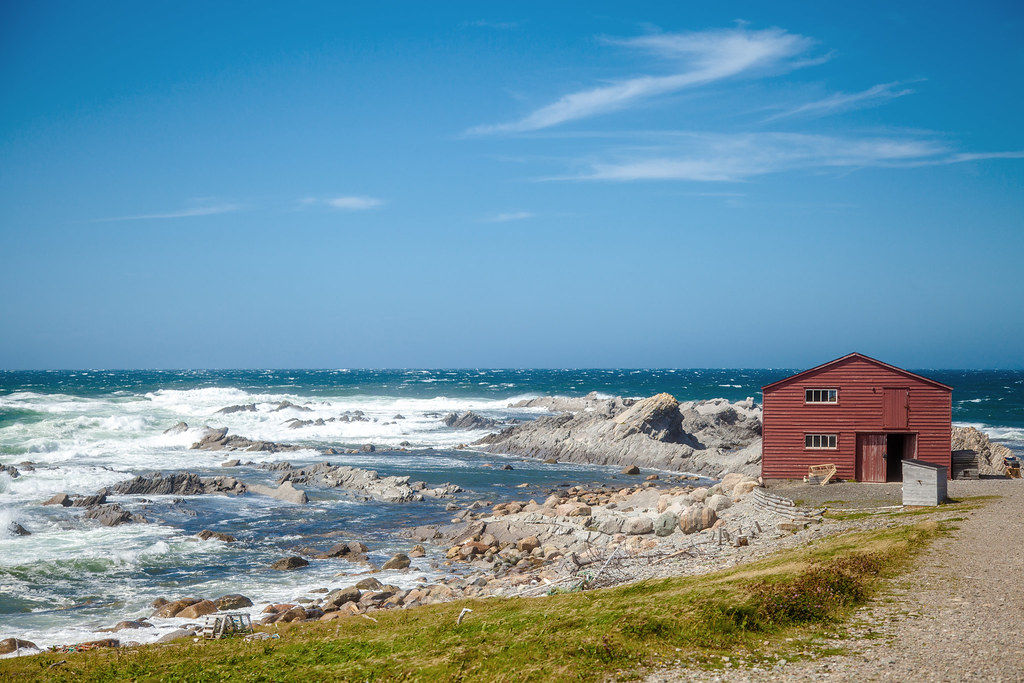
OUR PROGRAMS
MARINE PROTECTION & PLANNING
A healthy ocean is critical for protecting species and habitats, helping to fight climate change, and preserving a way of life in coastal communities. Marine Spatial Planning (MSP) is a process that promotes informed decision-making in marine management by combining geospatial tools, scientific research, and local or traditional knowledge. MSP should include a strong bottom-up focus, with communities empowered to build and share local knowledge and help form conservation recommendations.
The Gros Morne region spans approximately 200 m of coastline and includes seven coastal communities that are deeply connected to the ocean, which support local economy and culture. Unique glacier-carved fjords like Bonne Bay reaching depths of 234 meters make studying marine habitats by classic methods (i.e., SCUBA diving) challenging or impossible. However, by combining local knowledge with innovative technology, such as ROVs and other video technology, we can explore these marine habitats like never before. This approach fills knowledge gaps identified from decades of marine research in the area and supports a sustainable blue economy.
Where appropriate, marine protection stemming from strong marine research and a well-developed marine plan can be an important tool for promoting ocean and coastal community resilience. There are many benefits to marine protection. Ecological benefits come from protecting species and habitats, economic benefits come from ensuring the long-term sustainability of natural resources, and social benefits come from ensuring future generations can enjoy the ocean as we do today.

Collecting Baseline Data for
Marine Conservation
Since 2020, the Ecology Action Centre (EAC) has worked with fish harvesters, tourism operators, First Nations, community members and other stakeholders in the Gros Morne region to gather and summarize historical marine and social science research as well as local traditional ecological knowledge in the Community-led Marine Atlas (the Atlas). Rebecca Brushett, AHOI’s Founder and EAC's project lead, initiated community-led marine planning during her master’s thesis (Memorial University of Newfoundland) in 2015, focusing on socio-ecological areas of importance and perceived impact in the coastal and marine management areas of the Gros Morne region. EAC’s approach to MSP combined scientific research with local insights from previous research dating back to the 1960’s along with their own public engagement events. The collected data was used to understand key values for a sustainable future and develop geospatial layers to identify marine areas crucial for ecological and social preservation. In partnership with EAC, AHOI continues to lead the way to fill in key research gaps. Using the results from the Atlas, AHOI identified key research areas that are essential for maintaining or improving the ecological integrity of the marine environment in Gros Morne. We use a variety of methods to collect baseline data including ROV exploration to identify habitats and species associated with them, deployment of oceanographic instruments to measure temperature, conductivity (salinity) and depth, snorkel surveys in shallow nearshore areas, and deployment of Fukui traps to monitor invasive green crab, to name a few. Through these methods, we are able to ensure the biological layers found within the Atlas stay current to help inform marine planning decisions. This collaborative initiative aims to better understand the marine environment in the Gros Morne region and identify priority areas where increased conservation measures may be needed.

Engaging Communities and Identifying Priorities for Increased Conservation
Building strong stewards from the region is essential for protecting the health of our ocean and coastal communities. To do this, consistent engagement is needed to gain knowledge about our ocean and build strong relationships and trust with the people who live in the Gros Morne region. The Coastal Community Conservation Opportunities Initiative (CCCOI) is one way we’re doing just that. CCCOI is part of Fisheries and Oceans Canada (DFO) Marine Planning and Conservation (MPC) program. It aims to collaborate with community stakeholders to identify conservation initiatives that could benefit ecosystems and communities in Newfoundland and Labrador. Since 2023, with DFO, we’ve engaged with over 100 stakeholders in Gros Morne including fish harvesters, academics, and community members, to identify conservation priorities. This work will continue to help ensure community voices are heard and included in future marine planning and conservation efforts.
